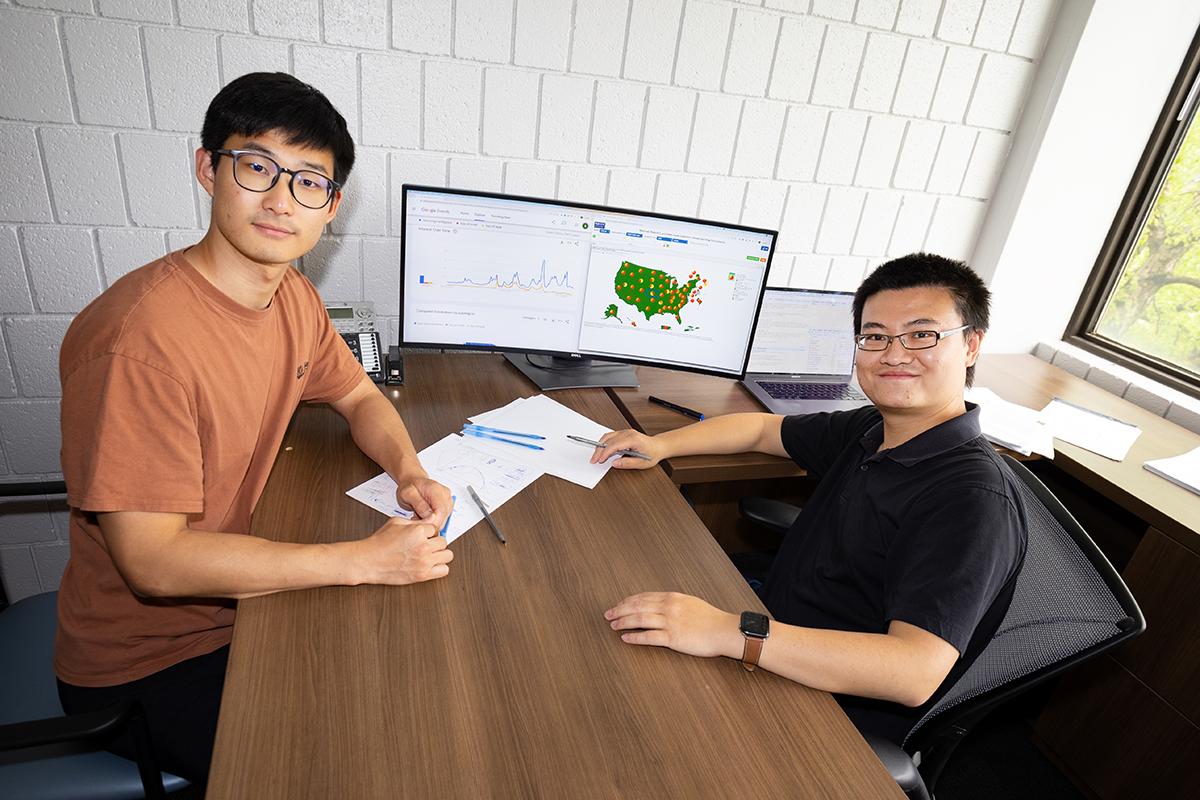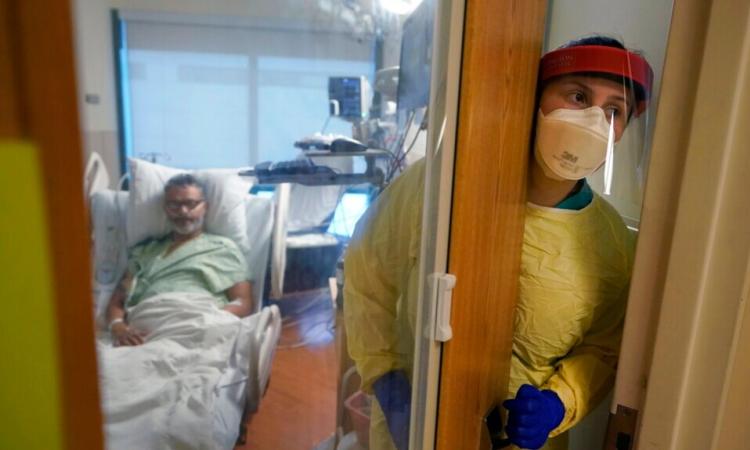Shihao Yang’s model forecasts when spikes in Covid-19 and flu infections will strain hospitals and health care resources.

Ph.D. student Simin Ma, left, and Shihao Yang, assistant professor in the H. Milton Stewart School of Industrial and Systems Engineering. They developed a model that uses search data to predict coming waves of serious Covid-19 and flu cases that could burden healthcare resources. (Photo: Candler Hobbs)
The most widely used source of medical advice in modern society might be the Google search box.
Enough people turn to the site with searches like “loss of taste” or “how long contagious” that researchers at Georgia Tech can use that data to accurately predict looming waves of influenza-like illness and Covid-19 infections. Their forecasting models work for the nation overall and for each state, offering a new source of data about potential “twindemics” that could burden healthcare systems.
The model, developed by Shihao Yang and his team in the H. Milton Stewart School of Industrial and Systems Engineering, is published in the Nature journal Communications Medicine.
“Our contribution is that we provide a unique angle for our forecasts: We find that there might be a hack for short-term prediction based on the search data,” said Yang, an assistant professor and co-author alongside Georgia Tech Ph.D. student Simin Ma and Shaoyang Ning, assistant professor of statistics at Williams College.
The team’s “hack” uses 23 key search queries, like “loss of taste,” to look ahead four weeks at the serious cases of both flu-like illnesses and Covid-19. The model uses federal data on hospitalizations and deaths from Covid-19, plus outpatient visits for flu-like illnesses — the official benchmark since it’s difficult to separate flu cases from other kinds of viral infections with similar symptoms.
“We provide a unique perspective. Many other people don't really use this data — what you might think about as alternative data,” Yang said. “Healthcare professionals and epidemiologists use surveillance data, survey data, hospital records. Those are the usual realm. As a statistician working in an engineering context, my lens is a bit different on our healthcare system.”
Yang said traditional epidemiological models are much more effective than his approach at forecasting six months or more in the future. Where his team’s work shines is in the short-term, offering public health officials and hospitals data to anticipate an imminent surge.
The researchers have presented their research results to the Centers for Disease Control and Prevention.
Yang has been using search data for flu forecasting for years and started to apply that knowledge to the coronavirus pandemic in early 2020. Over time, he sensed the new tools he and others developed for Covid predictions could help with flu modeling and vice versa.
With increasing concern last fall about a “twindemic” of both illnesses, “we realized this seems to be the time to start treating flu and Covid kind of equally,” Yang said. “So, the whole idea is, why don't I just put the two diseases together and build a joint model for both.”
(text and background only visible when logged in)
Related Stories

Scientists' Model Uses Google Search Data to Forecast COVID Hospitalizations
Future waves of Covid-19 might be predicted using internet search data, according to a study published in the journal Scientific Reports.
About the Research
This research was supported by the National Institutes of Health, grant No. UL1TR002378. Any opinions, findings, and conclusions or recommendations expressed in this material are those of the authors and do not necessarily reflect the views of any funding agency.
CITATION: Ma, S., Ning, S. & Yang, S. Joint COVID-19 and influenza-like illness forecasts in the United States using internet search information. Commun Med 3, 39 (2023). https://doi.org/10.1038/s43856-023-00272-2
